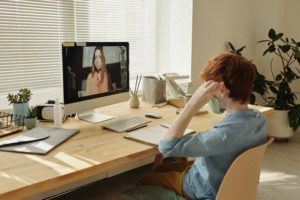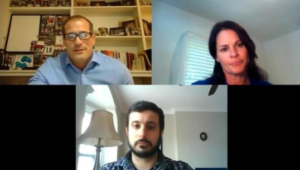Continued Evidence that COVID-19 is Exacerbating Educational Inequality
by Aaron Leo
In the last several months, researchers have begun to uncover evidence showing how COVID-19 school closures are causing disproportionate effects on students across the country. In many cases, these effects have exacerbated already existing inequalities along lines of class, race, and language background. NYKids continues to monitor these findings closely and offer insights from odds-beating schools we have partnered with throughout New York State.
The Changing Landscape of Education during COVID-19
The NYKids team has already reviewed many of these pressing issues already. We have explored, for instance, how the shift to remote learning has affected English learners and their teachers. In a recent interview with the interim director of Regional Bilingual Education Resource Network (RBERN), Carmen Diaz, provided additional insight into how educators can support English learners and their families during school shutdowns.
 In addition, we have reported on how the pandemic-induced school closings have created large gaps in services and resources provided to students. Schools, as “undercover child care and family support systems” provide students with important services ranging from mental health counseling to free and reduced meals for those living in poverty.
In addition, we have reported on how the pandemic-induced school closings have created large gaps in services and resources provided to students. Schools, as “undercover child care and family support systems” provide students with important services ranging from mental health counseling to free and reduced meals for those living in poverty.
We have also highlighted the important concern regarding how online schooling has had negative impacts on those without fast and reliable internet connections or computers. In a blog detailing this “digital divide,” we explored how students of color and those from low-income households were more likely to struggle in remote learning environments than their more affluent, white peers in this regard. Such effects were also evident in rural areas lacking the infrastructure for high-speed internet as well.
New Research Continues to Expose Educational Inequality
Researchers are continuing to unpack the effects of COVID-19 school closures on students’ academic performance and social-emotional health.
Recent reports suggest that the phenomenon of “summer melt” whereby students lose some of the learning they gained over summer break will be exacerbated by the school closures. For instance, a new study by the American Educational Research Association (AERA) reports that over half of U.S. students experience summer learning losses five years in a row. These students lose on average nearly 40% of their total school gains.
In another White Paper from the Northwest Evaluation Association (NWEA), researchers note that this phenomenon is likely to have a bigger impact on students – especially in mathematics – as an effect of the COVID19 school closures.
Inequality has been found in the delivery of online instruction in recent research as well. In a survey of 474 school districts across the country, the American Institutes for Research (AIR) found that high-poverty districts spent significantly less time on instruction than did districts with less poverty. More impoverished districts were also more likely to review old content than introduce new material.
Lessons from Odds-beating Principals
 Educators from odds-beating schools in New York State can provide some insights into how to cope with the effects of school closures and the move to remote learning in response to COVID19. NYKids Director Dr. Kristen Wilcox interviewed Maple Grove Jr/Sr High School Principal, Julie Verdonik and Malverne Senior High School Principal Dr. Vincent Romano to learn about how their schools have risen to the challenges posed by the pandemic and the resulting school closures.
Educators from odds-beating schools in New York State can provide some insights into how to cope with the effects of school closures and the move to remote learning in response to COVID19. NYKids Director Dr. Kristen Wilcox interviewed Maple Grove Jr/Sr High School Principal, Julie Verdonik and Malverne Senior High School Principal Dr. Vincent Romano to learn about how their schools have risen to the challenges posed by the pandemic and the resulting school closures.
They discuss how teachers at their schools prioritized maintaining relationships with their students, continued to hold high learning standards, and planned for the future amidst great uncertainty. We look forward to learning more from these odds-beaters as we begin to disseminate results from our follow up College and Career Readiness Study exploring students’ perspectives on their high school experiences.
For more research and information on the effects of COVID19 school closures see NYKids’ News and Resources pages and reach out to nykids@albany.edu if you or your organization would benefit from our continuous improvement direct support.
Tag:COVID19, digital divide, inequality, poverty
